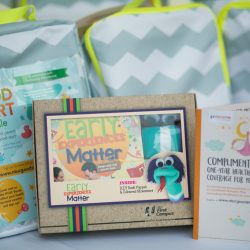SingaporeMotherhood | Baby & Toddler
October 2017
Understanding Eczema in Babies & How to Deal with It
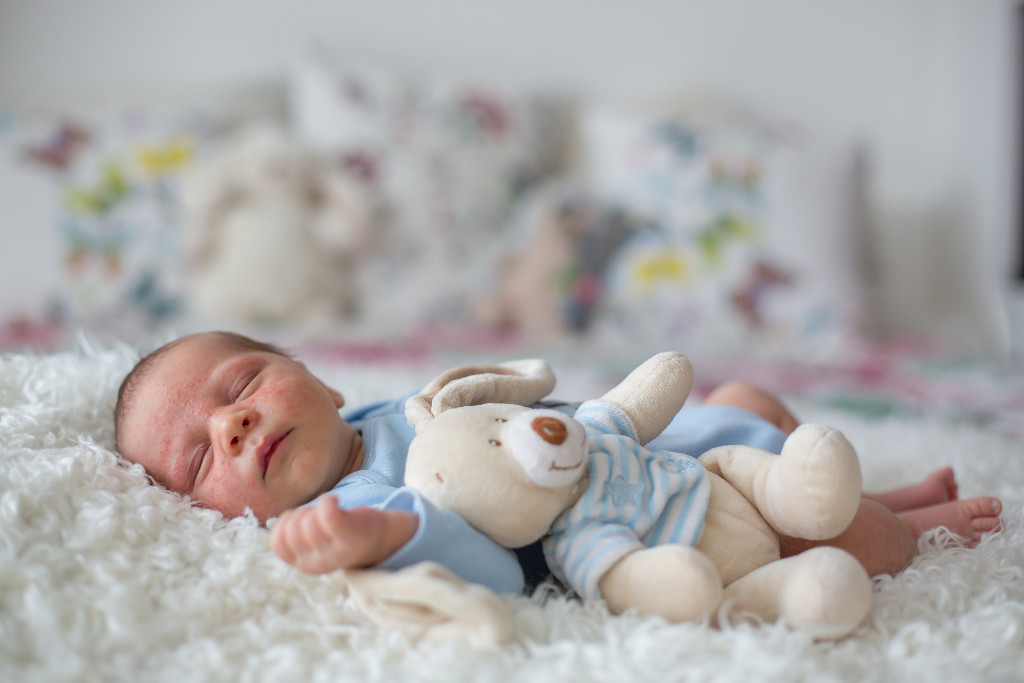
Eczema in babies is a common condition. They show up as red, crusty patches on Baby’s skin, often during their first few months after birth. Thankfully, it’s not the end of the world!
If your baby has itchy and inflamed skin rashes, check with your doctor to confirm if your baby is suffering from eczema. Don’t fret if the diagnosis is indeed positive, as the condition is extremely treatable. We have compiled a series of questions and answers to provide you with more information about eczema.
(See also: Eczema: 9 Things You Can Do to Calm Baby’s Dry and Itchy Skin)
[banner][/banner]
What is Eczema?
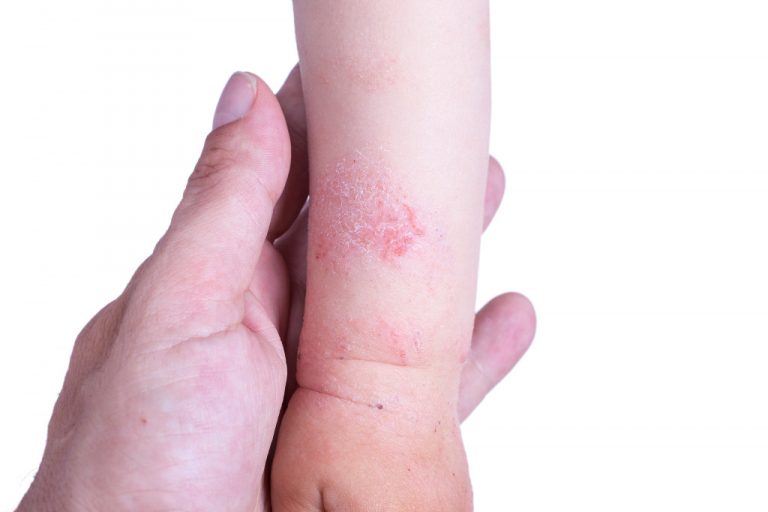
Eczema is a dry and itchy skin condition which affects up to one in five children. Eczema will appear for the first time usually a few months after birth and before your child turns two years old. Your child may or may not outgrow the condition but research has shown that 65 per cent of children outgrow eczema by the time they turn seven. Unfortunately, eczema cannot actually be cured, but it can be controlled with the right remedies and treatments.
Eczema is also known as atopic dermatitis. Atopic refers to a tendency to be hyper-allergic, while dermatitis means an inflammation of the skin. Having eczema means that the skin’s barrier is not working properly, making the skin much drier. The skin is then more vulnerable to infections as allergens which can enter the skin more easily, making the condition even worse.
(See also: 8 Common Baby & Child Skin Problems)
Eczema may be hereditary but either way, the baby will suffer from dry, itchy, scaly, red and cracked skin. The cracked skin can sometimes ooze fluid and even bleed. The resulting wounds may be extremely painful. The areas most affected are the face, neck, hands, elbows and knees.
What Triggers Eczema?
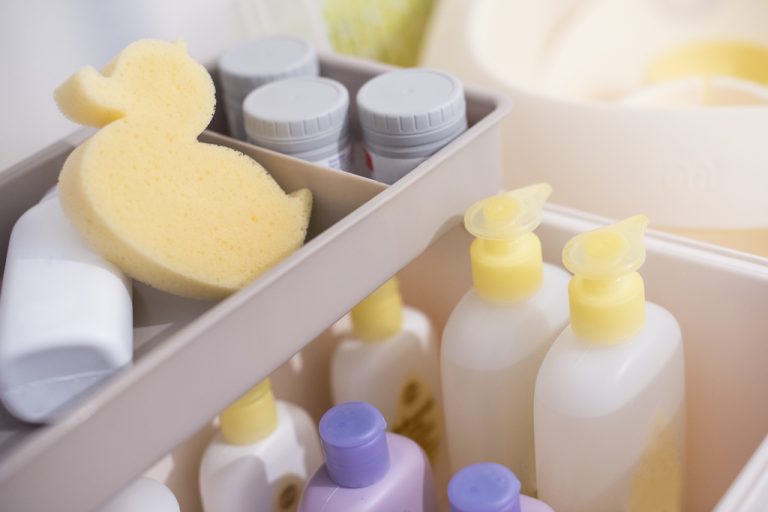
Eczema can happen to a baby for several reasons. Firstly, they may have inherited the genes that make them more susceptible to allergic reactions. Secondly, Baby’s diet and living environment can also cause eczema flare-ups.
If your doctor suspects that your child’s eczema is triggered by certain foods, eliminate the foods one at a time. Common allergens include cow’s milk, eggs, soy, wheat, peanuts, and certain fish. If you are breastfeeding, you may also want to avoid intake of foods that trigger Baby’s eczema.
The type of shampoos, bath soaps and shower gels you use on Baby can also be a trigger. Switch to using gentle organic bath creams or foams to cleanse Baby from head to toe. Make sure it is free from parabens, sulphates and artificial fragrances. There are also dedicated products containing quality emollients that may help.
(See also: Jumping On The Organic Baby Bandwagon)
The same goes for laundry detergent. Thankfully, there are brands of organic laundry soaps on the market designed for sensitive skin. Experiment to find one that does not trigger a flare-up. Remember to wash the entire family’s laundry with the same, as Baby will come into contact with your clothes too!
How is My Baby’s Eczema Treated?
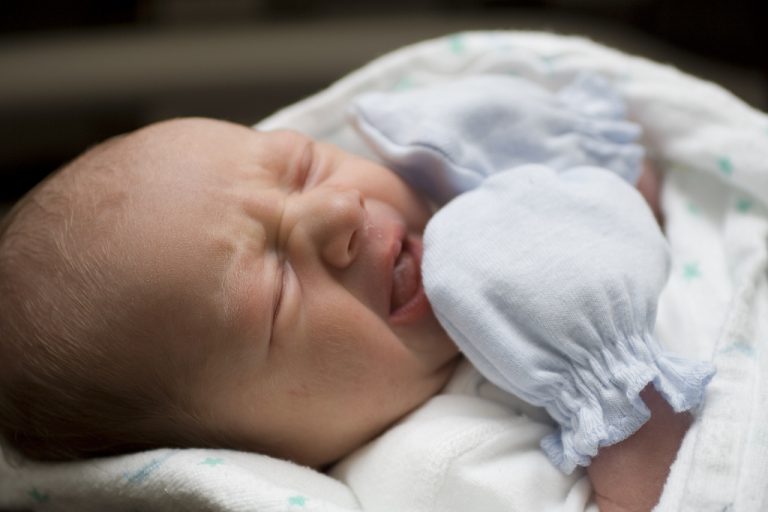
The treatment of eczema depends on the severity of the condition. If Baby has mild eczema, you can use an emollient lotion, cream or ointment to treat the red patches on their skin.
In a more serious flare-up, your doctor may prescribe a short course of a low-strength steroidal cream. However, do be aware that the continuous use of steroid cream will thin Baby’s already sensitive skin. Unless absolutely necessary, it would be best to avoid using steroid creams.
If the red patches are cracking and oozing with fluid, the doctor may also prescribe an antibiotic cream to prevent inflammation of the red patches. Keep an eye on the affected area to ensure it is not infected. At any time, if Baby develops a fever, see the doctor at once. This usually signals an infection, which will usually warrant oral antibiotics too.
(See also: The A to Z of Eczema in Children)
The eczema patches can be extremely itchy. Your baby may try to get relief by scratching with his hands or by rubbing his face against the sheets during sleep. It’s a good idea to use soft sheets made from 100 per cent cotton for their cribs. Try to keep Baby’s nails trimmed and muffled with mittens.
Your doctor may prescribe oral antihistamines if the discomfort from eczema affects Baby’s much-needed sleep. The antihistamines often cause drowsiness, so it is best to administer the medication just before nap time or bed time. Never use over-the-counter antihistamines on babies and young children.
How Can I Help Keep Eczema at Bay?
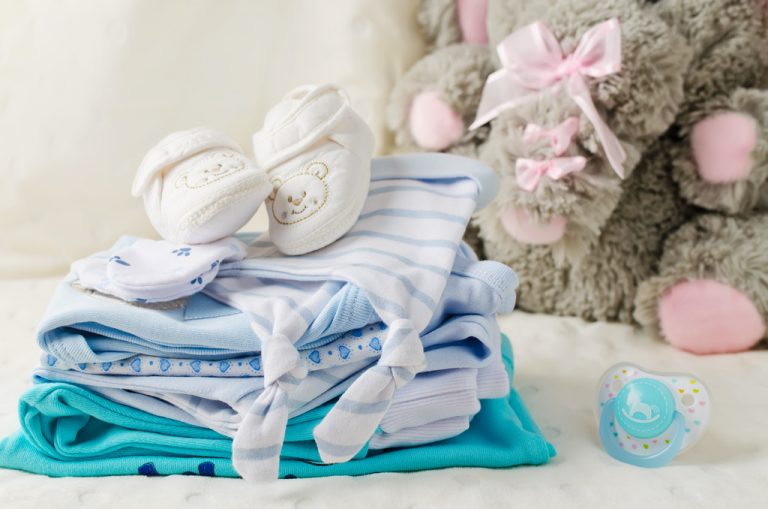
The key is to avoid triggers of eczema for your baby at all costs. Keep a diary and try to identify any trigger which affects your baby’s eczema. Minimise and eliminate these triggers to keep eczema at bay.
In our tropical climate, with typically hot and humid weather, you should dress Baby in loose-fitting clothes. Avoid synthetic fibres as much as possible. Fabric made from 100 per cent organic cotton is generally safest. Heavily dyed fabrics are also a no-no.
(See also: Happy Monkey: Non-Toxic, Eczema-Friendly Baby Clothes for Kids in Singapore)
A home remedy you can try is an oatmeal bath. Add one cup of colloidal, or finely ground, oatmeal to warm water and soak Baby in the oatmeal bath for 10 to 15 minutes. Oatmeal is well-known for its anti-inflammatory properties and it is also thought to have an antihistamine effect.
It is critical to moisturise Baby’s skin at least three times a day to prevent eczema flare-ups. Do this on a daily basis, even when Baby’s skin is clear. There are many reputable brands of organic and natural moisturising baby lotions available at pharmacies. Ask your doctor for recommendations. Keeping Baby’s sensitive skin moisturised helps to prevent it from drying out. Remember: dry skin is a precursor to eczema flare-ups.
What about Going Forward?
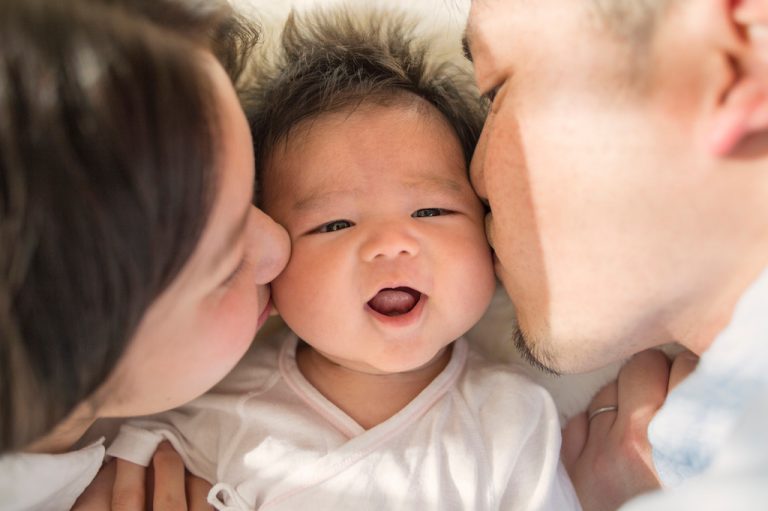
Be aware of the numerous researches carried out on eczema. Try to stay abreast of new creams or treatments which may help alleviate your child’s condition. Speak to your doctor and explore possible options that may help.
It is good to notify your infant care or childcare provider that your child has eczema. Remind them that the rashes are not contagious. Your child may be teased by their peers as they enter preschool and primary school. Hence, it is important that their teacher educate the class about eczema.
(See also: Help Your Child Cope with Bullying)
As your child grows older, talk to them about their condition. Ask them how they feel and if they are facing problems at school due to those annoying red patches. If necessary, approach their teachers to manage friction with classmates. Listen closely and get professional counselling when needed.
You can help your child manage their eczema not just physically, but also emotionally. Help them to understand that it’s not their fault, and that eczema doesn’t make them any less amazing than they are!
All content from this article, including images, cannot be reproduced without credits or written permission from SingaporeMotherhood.
Follow us on Facebook, Instagram, and Telegram for the latest article and promotion updates.




